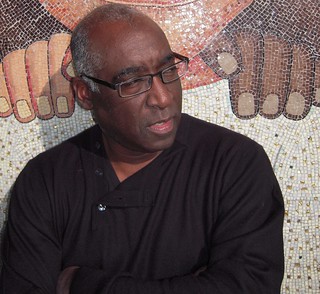Show description for Sunday 8/19/2012 @ 3:00 PM - 6:00 PM

(Please note; Darius Jones was rescheduled to a later program. JD) This week, on the 4 o'clock hour, saxophonist, composer, Darius Jones, returns to New Day Jazz to discuss his most recent recording, Book of Mæ'bul (Another Kind of Sunrise), part 3 his continuing Man'ish Boy series on AUM-Fidelity. Mr. Jones is among the most innovative and exciting alto saxophonists in his generation, and one of the most inspiring voices in the jazz world today.
Later in the program, on the 5 o'clock hour, we are joined by Alan Gilbert for a discussion of his most recent book, Black Patriots and Loyalists Fighting for Emancipation in the War for Independence, new from the University of Chicago Press. Mr. Gilbert is a John Evans Professor in the Josef Korbel School of International Studies at the University of Denver. He is the author of Marx’s Politics: Communists and Citizens, Democratic Individuality, and Must Global Politics Constrain Democracy?
Later in the program, on the 5 o'clock hour, we are joined by Alan Gilbert for a discussion of his most recent book, Black Patriots and Loyalists Fighting for Emancipation in the War for Independence, new from the University of Chicago Press. Mr. Gilbert is a John Evans Professor in the Josef Korbel School of International Studies at the University of Denver. He is the author of Marx’s Politics: Communists and Citizens, Democratic Individuality, and Must Global Politics Constrain Democracy?
| Artist | Song | Album | Label | ||
|---|---|---|---|---|---|
| Jackie McLean | Appointment In Ghana | Jackie's Bag | Blue Note | ||
| Hank Mobley | No Room For Squares | No Room For Squares | Blue Note | ||
| HoraceSilver | Pretty Eyes | Cape Verdean Blues | Blue Note | ||
| Joe Henderson | Short Story | In 'N Out | Blue Note | ||
| Bobby Hutcherson | Rojo | Happenings | Blue Note | ||
| ========================== Airbreak ========================== | |||||
| Michael Bisio & Matthew Shipp | Swing Laser | Floating Ice | Relative Pitch | ||
| Darius Jones Quartet | The Fagley Blues | Book of Mae'bul (Another Kind of Sunrise) | AUM-Fidelity | ||
| Darius Jones Quartet | Winkie | Book of Mae'bul (Another Kind of Sunrise) | AUM-Fidelity | ||
| Darius Jones Quartet | Be Patient With Me | Book of Mae'bul (Another Kind of Sunrise) | AUM-Fidelity | ||
| ========================== Airbreak ========================== | |||||
| David S. Ware | Precessional 3 | Planetary Unknown: Live at Jazzfestival Saalfelden 2011 | AUM-Fidelity | ||
| Joe Morris | Mesosphere | Altitude | AUM-Fidelity | ||
| ========================== Airbreak ========================== | |||||
| Red Garland | You'll Never Know | Bright & Breezy | Jazzland | ||
| Jimmy Heath | Goodbye | Triple Threat | Riverside | ||
| Jimmy Heath | Gemini | Triple Threat | Riverside | ||
| ========================== Airbreak ========================== | |||||
| Interview With Alan Gilbert By Justin Desmangles | Interview With Alan Gilbert By Justin Desmangles | Interview With Alan Gilbert By Justin Desmangles | Interview With Alan Gilbert By Justin Desmangles | ||
| Roscoe Mitchell & The Sound Ensemble | The Stick & The Stone | Live At The Knitting Factory | Black Saint | ||


 JUAN FELIPE HERRERA
JUAN FELIPE HERRERA




